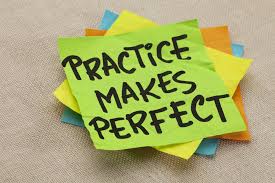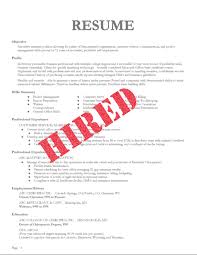You have heard the saying a thousand times; practice makes perfect.
You do not know what to fully expect during an interview but with Comvergent’s help, you will be able to prepare for the unexpected.
Our advice to you is:
Visualise the interview before you’re in the real hot seat. Recite the questions expected in your down time and practice answering these questions.
Here are some of the most common questions asked during an interview for a role in telecommunications. If you can make a good impression with your answers, you’re one step closer to your dream job.
Why Should We Hire You?
Summarise your experiences:
“My five years of experience working in the telecom industry ranges from __________ to working in __________. I could make a big difference in your company because I understand technology and have customer service skills. I’m confident I would be a great addition to your team.”
Why Do You Want to Work Here?
The interviewer is listening for an answer that indicates you’ve given this some thought and are not sending out resumes just because there is an opening. Impress the interviewer by expressing genuine passion for the company you have applied for.
“Your company seems to be at the forefront of telecom technology. I want to be part of the growing industry in a great company like yours.”
What Are Your Goals?
Sometimes it’s best to keep this answer simple and talk about short-term goals rather than looking into the unknown and distant future.
“My immediate goal is to get a job in a dynamic company and then it really depends on where the company is headed. What will never change in time is my dedication, hard work and drive to learn new things.”
What Types of People Do You Have Most Difficulty Working With?
Everyone struggles with co-workers at one time or another but during an interview, it is important to spin a negative experience into a positive.
“I worked with a person who took credit for everything. This really affected my confidence and morale so I talked with him about it. He didn’t even realise he was doing this. Overall, it made our professional relationship better, more productive and I felt better after approaching the matter with honesty”
When Were You Most Satisfied in Your Job?
The interviewer wants to know what motivates you. If you can relate an example of a job or project when you were excited, the interviewer will get an idea of your preferences.
What Can You Do for Us That Other Candidates Can’t?
What makes you unique? This answer requires an assessment of your experiences, skills and traits. Be clear and do not ramble.
“I have a unique combination of strong technical skills, and the ability to build strong customer relationships. These skills allow me to break down my knowledge in a way that customer’s understand.”
What Are Three Positive Things Your Last Boss Would Say About You?
Read out your old performance appraisals and quote positive things your boss has said. This is a great way to brag about yourself through someone else’s words.
“My boss has told me that I am the most reliable database expert she’s ever had. My attention to detail meant that she could rely on me. “
How Do You Work Best With Other People?
The interviewer is looking for clues about whether you are a team player or an individual contributor. Both are important but best suited for particular roles.
“When I’m resolving a technical problem, I like to have procedures to follow. But, when the issue is something I can’t resolve on my own, it’s great to have a teammate I can turn to for help.”
What Do You Read First When You Pick Up a Newspaper or Scan Internet News?
There isn’t a right answer to this question. It is just meant to get you talking and shows an interviewer that you’re willing to learn and connected to the world around you.
What Are Your Weaknesses?
This is a dreaded question. Handle it by minimising your weakness and emphasising your strengths. It is important to be honest with your answer and show the interviewer that you can be reflective on your own professional work. Stay away from personal qualities and concentrate on professional traits
“In the past, I have taken every training opportunity possible to improve my technical knowledge. It hasn’t left a lot of down time for myself but I put my passion for the tech industry first. ”
 The important thing to remember is that interviews are not set up to trip you up, there are no trick questions and nobody wants you to fail. Practice these answers and you will become more confident in your ability to conquer the interview and have a fulfilling career in telecoms! Once you feel ready to face the interview for real, get in touch with us and we’ll find the perfect role for you!
The important thing to remember is that interviews are not set up to trip you up, there are no trick questions and nobody wants you to fail. Practice these answers and you will become more confident in your ability to conquer the interview and have a fulfilling career in telecoms! Once you feel ready to face the interview for real, get in touch with us and we’ll find the perfect role for you!






